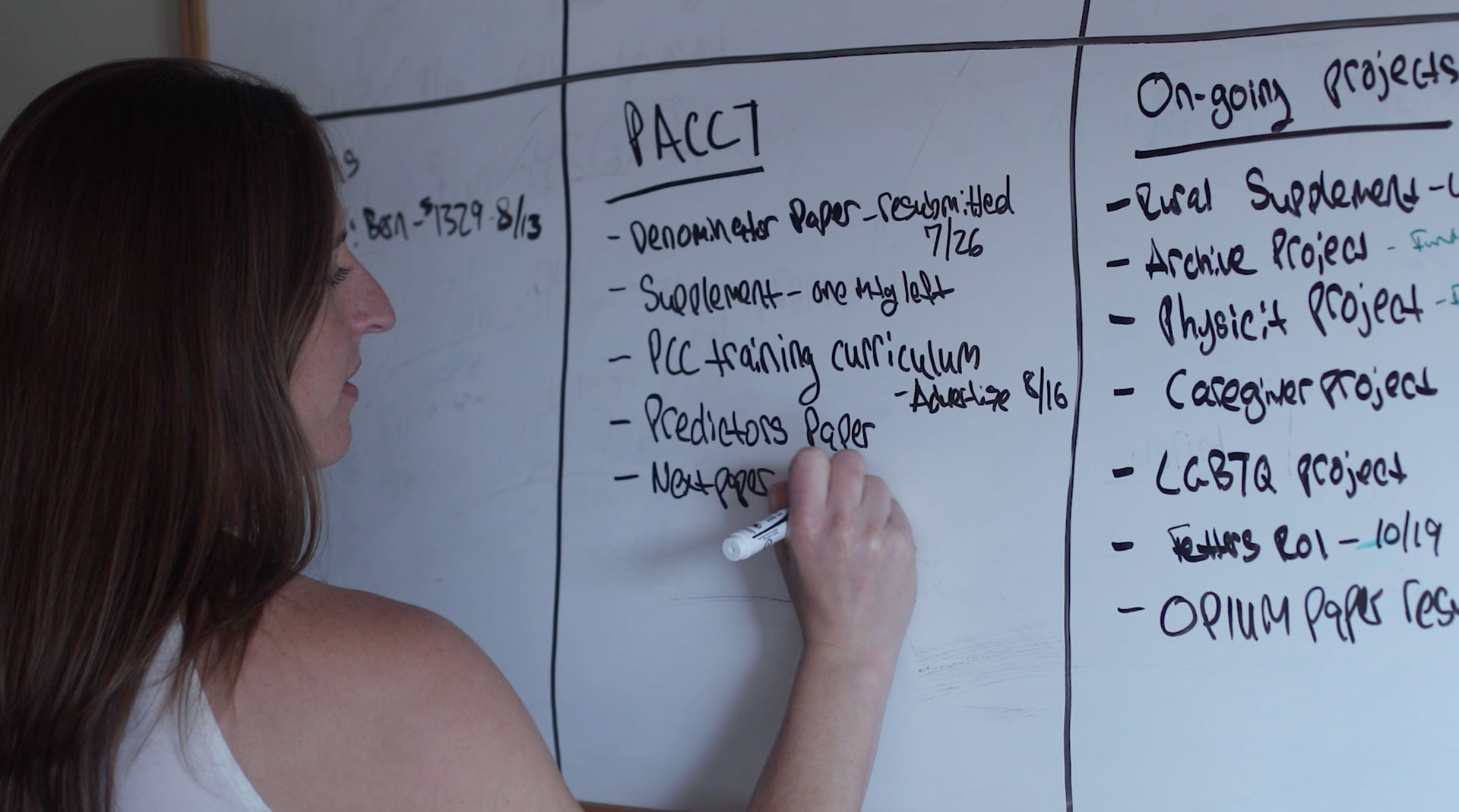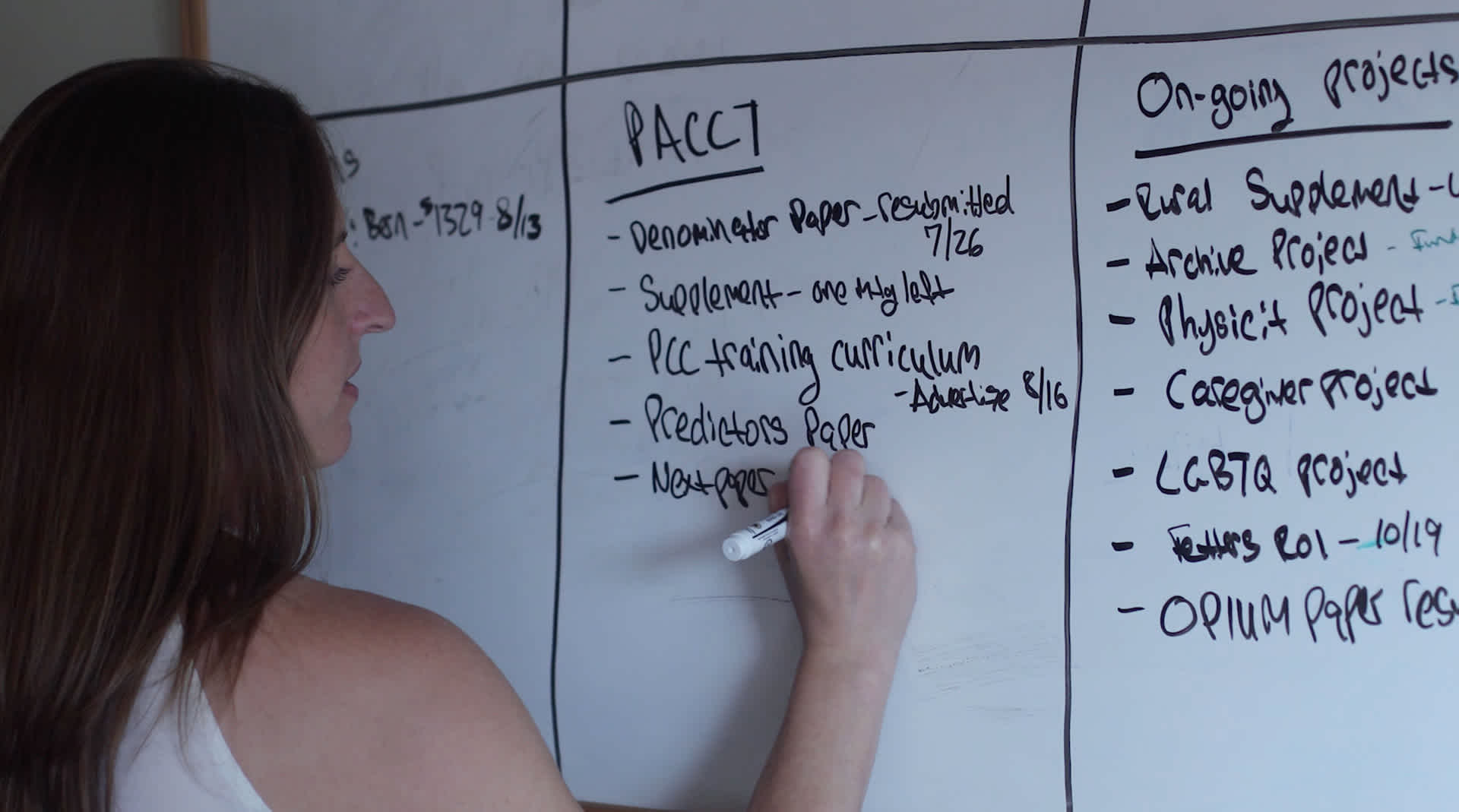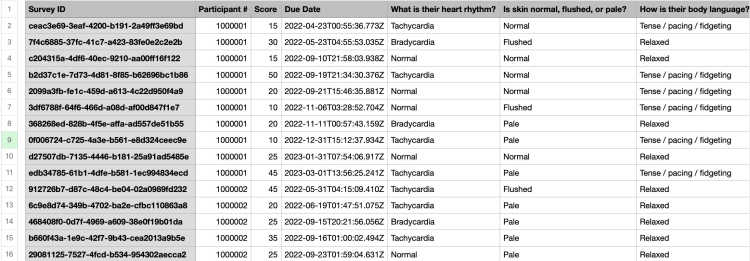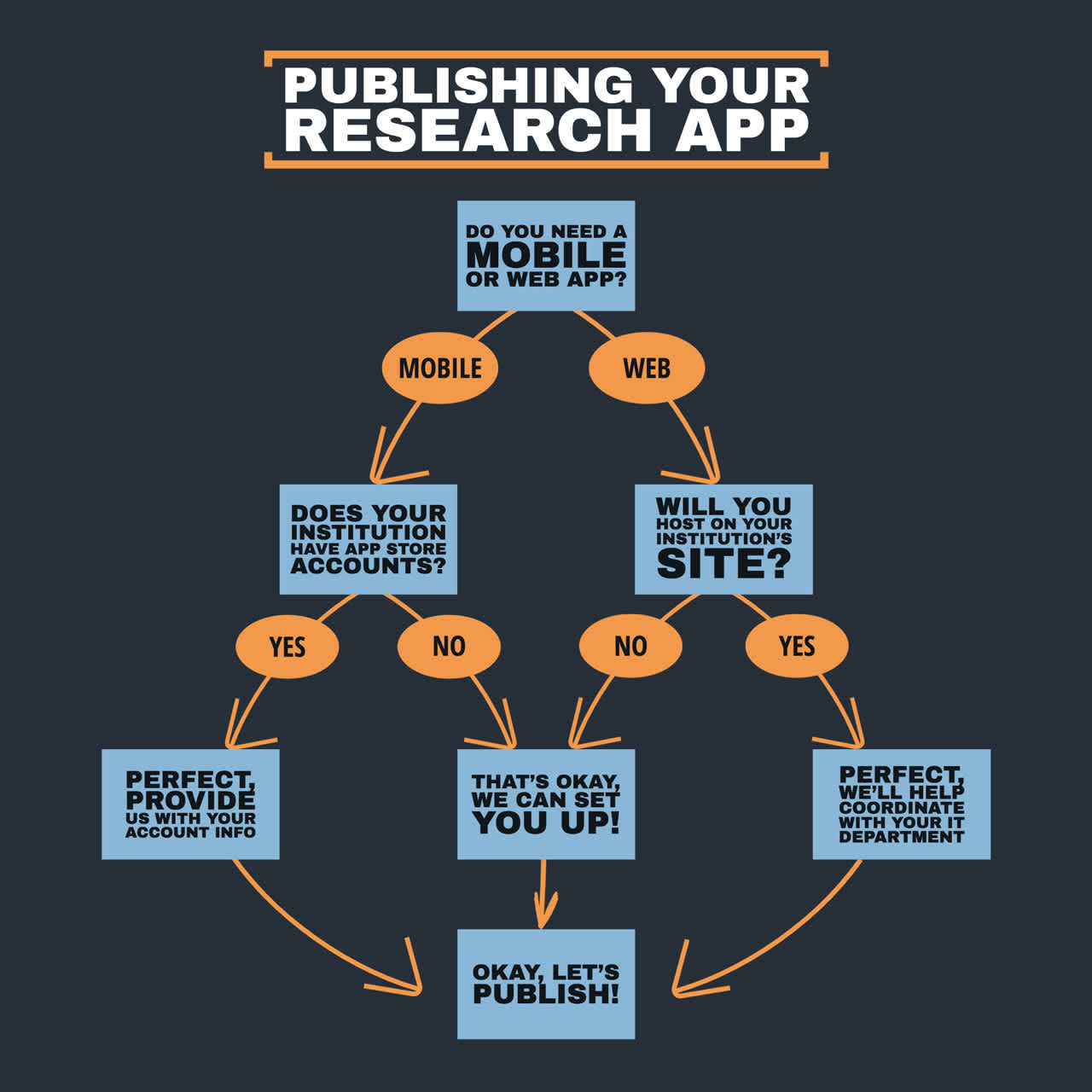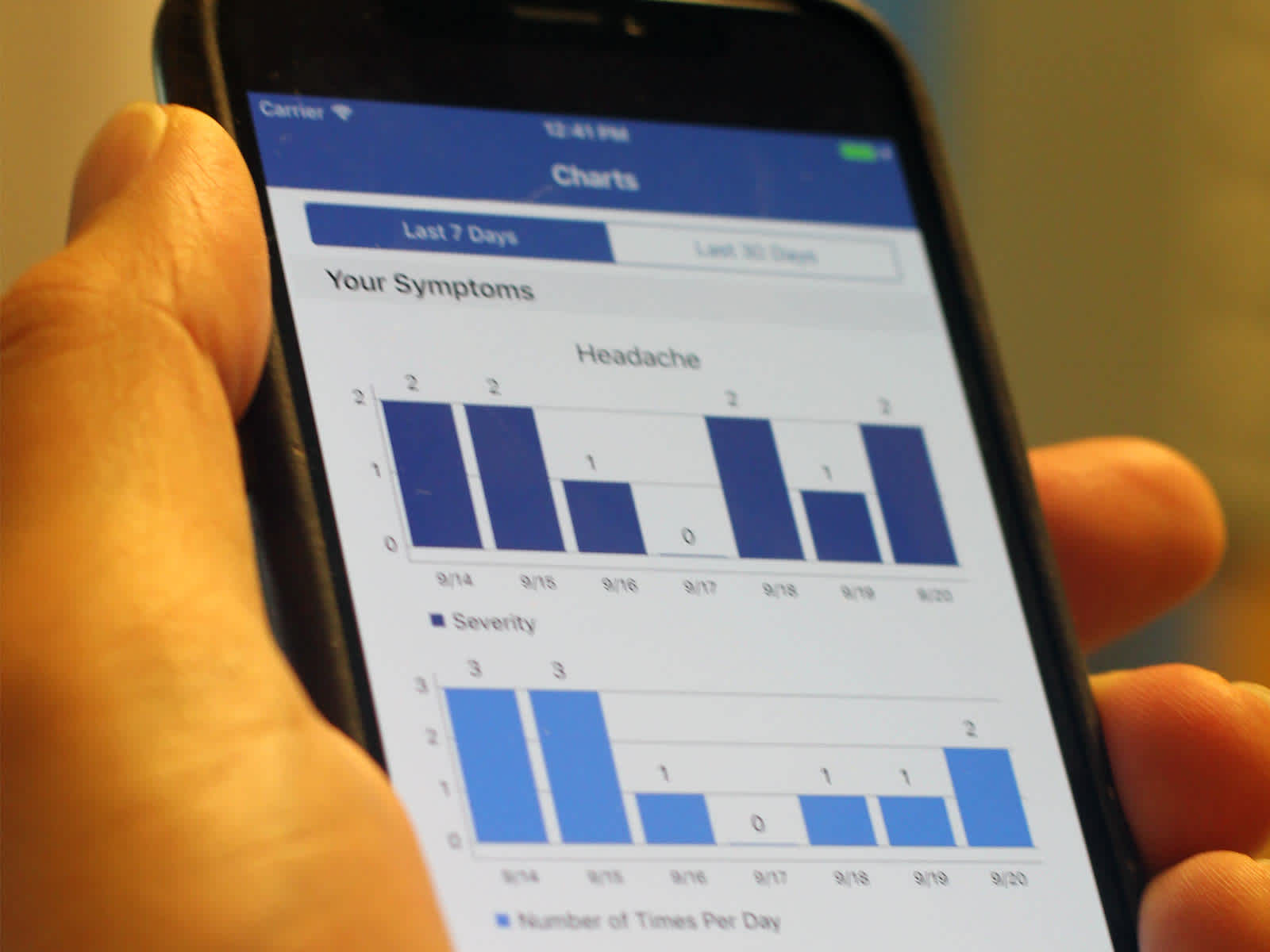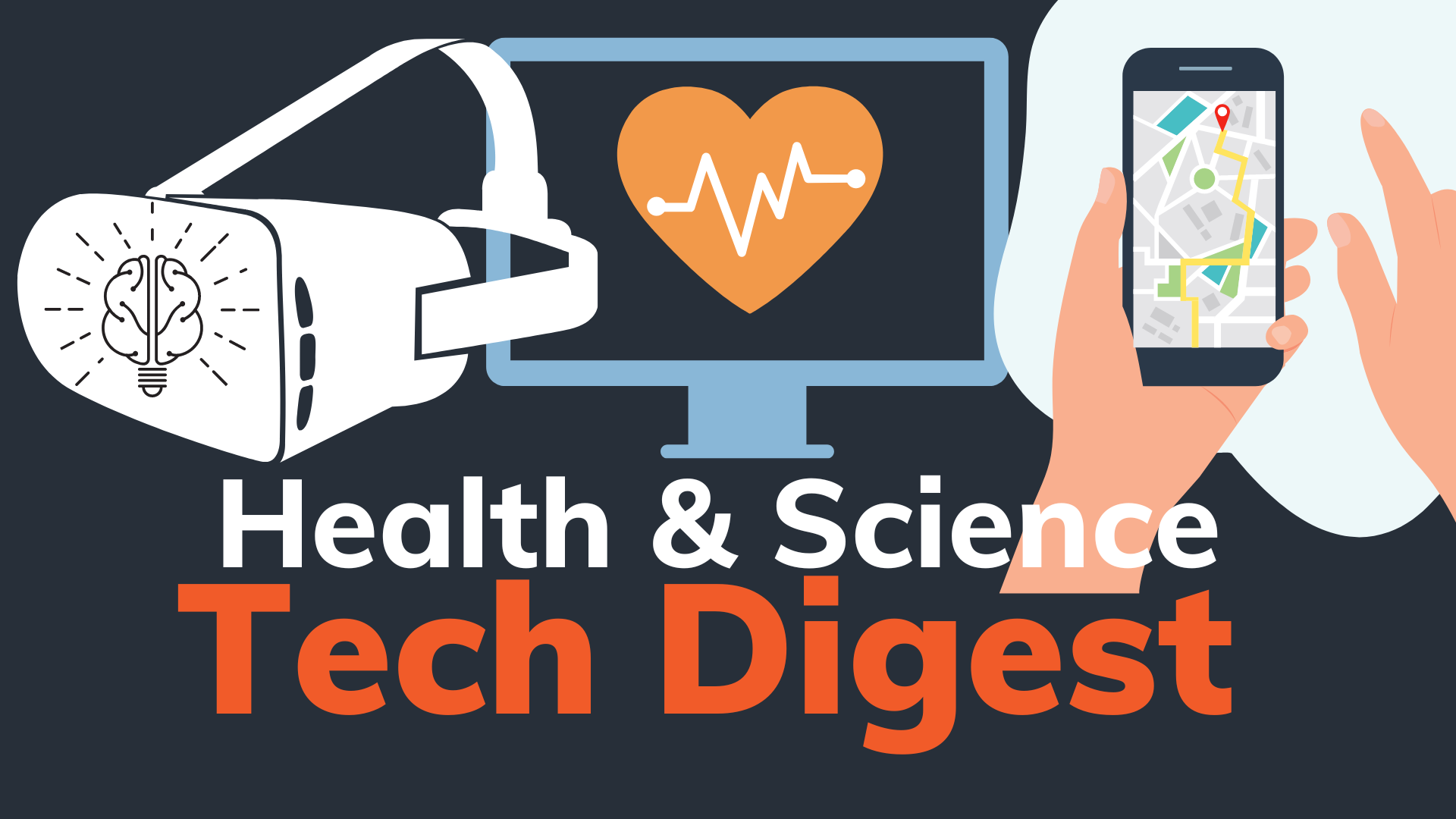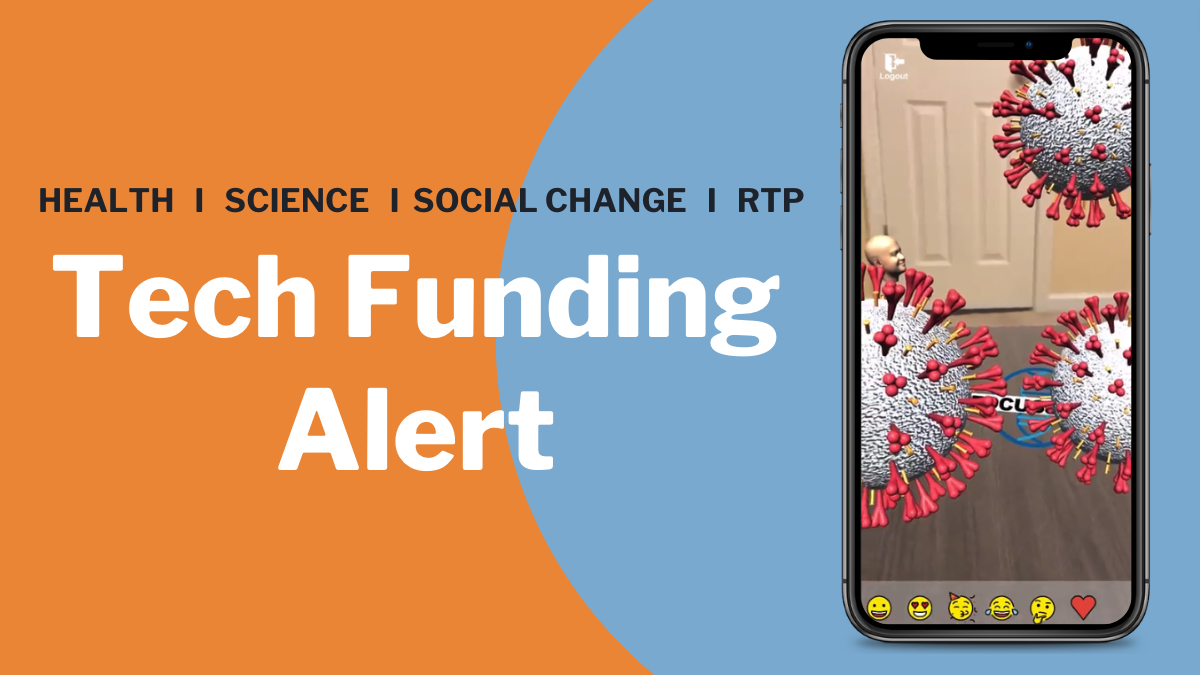Mobile and web applications are prevalent in every corner of life and are a fantastic mechanism for collecting data or reaching a target population. However, the task of building an app for a research project can be daunting. Knowing how to prepare for app development can save you a lot of time, headaches, and valuable funding.
What To Know When Building an App for Research Studies
The first phase of development at CrossComm is called discovery–this is the time when we will help you plan your project so it meets your specific needs. Positioning yourself for a successful discovery phase begins with three essential questions: What? Who? and When? Below you will find an excellent starting point for gathering the information you’ll need.
Lauren Hamel, PhD worked with CrossComm to build the Discussions of Cost app.
What is your big idea?
The first and most important step is to clearly establish what you want your app to do. Having a clear picture is a good start, but you should also come to the table with an openness to recommendations from your technical partner.
Some clients approach us with very specific requirements in mind, like needing a mobile app to run on both iOS and Android so that any participant could install it on a personal device. Others may approach us with an idea for a mobile app, but through the discovery process, we find we can accomplish their goals with a mobile-responsive web app, saving them time and money.
To achieve your goals, you’ll need to consider what your app needs to reach your user population. Whether you’re working with children or the elderly, athletes or average joes, it’s important to factor all this into your plan to ensure the best user experience possible.
Is reading level or visual accessibility an important factor?
How comfortable are your users with technology?
Will users have access to the internet or other technology required by your app?
Will you be providing phones or tablets to them as part of your study, or will they be using their own device?
You’ll also want to consider what kind of data you’ll want to collect, if any. If you can provide a template in .csv format of variable names, missing data codes, etc. to your technical partner early in the process, they can build your app in a way that ensures that it captures all of your expected information.
Sample CSV of patient data from a clinical research study
And if your research involves Personal Health Information (PHI), you’ll want to consider HIPAA compliance. We’ve already outlined several options to manage your PHI in this guide, but you may also be able to avoid HIPAA compliance issues by not collecting ePHI in your app itself.
Consider what you absolutely need in the app and be open to suggestions on tactics to protect your users and yourself.
While we’re a long way out from design and UX, you’ll still want to plan ahead for what, if any, branding your organization requires. If you’re unsure, we suggest checking with a marketing or communications director within your organization or looking on your institution’s internal website or intranet for a style guide. This can be as simple as a set of logos or as complex as required fonts, colors codes, and trademarks. It is easiest to build an app with the proper branding from the start.
One of the most important questions to keep in mind is what is your budget? If this is your first time working on an app, you’ll likely want to meet with a technical partner before you apply for funding, as discussing what you want and need with your technical partner helps create realistic estimates.
In addition to planning for cost, demonstrating that you have an established relationship with a technical partner can also help bolster your grant application. In the past, we have been able to provide research clients with letters of support to include in their proposals. Check out our guide about the five tech partner must-haves for your research grant to succeed.
Who needs to be at the table?
From start to finish, there are a number of people who should be involved in the process of building software. It’s important to know who to have at the table and when.
Let’s start with the most obvious question: who is your technical partner? When choosing an app developer for research studies, you’ll want a company who will not only build your software, but also leverage their expertise to guide you throughout the process. They will help you understand both the technical opportunities and potential limitations that could impact the execution of your idea.
It helps if your technical partner has prior experience working with research projects. Some questions you might ask when assessing potential technical partners are: Can you tell me about other research projects you’ve developed? Can you point me to examples of your work with other research teams? Does anyone on your team have a background in clinical or scientific research?
In addition to finding the right technical partner, you will want to identify any internal stakeholders who may need to provide input about your project. Many institutions have an internal department that creates policies about app development for research projects. You should identify who to contact at your institution, as they can provide valuable information about any internal concerns, including security.
Engaging with that group early in the process reduces the chances that you’ll run into expensive surprises later. If your institution has one of these groups, you’ll want to keep in close contact with them throughout the app development process.
You’ll also want to make sure that you consider who needs to approve your plans before you start development. Check with your security office about potential policies that cover the use of apps in research. Some institutions have certain platforms or operating systems that they don’t allow, and others require additional third-party testing. Sometimes these requirements only affect the collection of ePHI or other confidential information. You’ll want to know about any of these pitfalls before setting a budget and plan.
It’s important to be in communication with your IT team as well. If you want a web app hosted on your institution’s site, you’ll want to identify who your technical partner can connect with to coordinate that effort. If you’re building a mobile app, you’ll need to know if your institution has its own App Store or Google Play Store developer accounts.
You’re likely going to need a cloud platform to store your app and data, so you’ll also want to find out if your institution has its own Amazon Web Services (AWS) account or if they have another preferred service. If you don’t have all the answers yet, we can help walk you through it. But if you can gather some of this information now, you will set yourself up for a smooth start to the development process.
The flow from needing an app to publishing can be smoother with the right questions
Next, you’ll need to consider who else should be involved in your project while your technical partner develops the app. Once development is over, you’ll probably be eager to hit the ground running and begin using your app as soon as possible. You can save a lot of time by addressing other aspects of the study start-up process during app construction so that you can start recruitment soon after development is complete.
First, connect with your Institutional Review Board. They often require specific language in your consent form if you’re using a mobile app as part of your research. You’ll also want to check in with your Privacy Office or Legal Department.
Almost all apps will require a written privacy policy that makes it clear how a user’s data will be collected and used. Find out who needs to write and/or review your privacy policy before your project is published.
If you plan to make changes to the app after gathering user feedback, you’ll need to consider who will be doing the testing. If you plan to ask participants for feedback once the app is live, you’ll want to mention that in the initial meeting with your technical partner so they can help you account for it in your budget and timeline.
A clever solution one of our clients used involved sending designs to clinicians and trusted community members during the discovery phase, which allowed us to account for user feedback early in the process, saving time and budget. Could you gather a list of people similar to your target population?
Finally, it can also be incredibly helpful to discuss your project with someone who has been in your shoes. Do you have any colleagues who have gone through the process before? They might have some tips about navigating this process at your institution.
When will you hit milestones?
This is the simplest of the three major questions, but still important to your app’s success.
When is your target start date for recruitment? This deadline should already be built into your grant application. Your technical partner can work backwards from that date to build out a development timeline for your app.
When will recruitment end? No matter how long you plan to enroll participants, you’ll want to allow some room in your budget for maintaining the application for the duration of your study. If your study recruitment timeline spans a year or more, it’s likely that there will be upgrades and changes to the technology that supports your application.
You may also plan to seek additional grant funding to improve the app in a later study, and a good technical partner can help you assemble the development-related information you’ll need for the application. Technology changes fast, so you’ll want to make sure you can adapt over the life of a longer study.
The MyPatientPal app helps cancer patients track their symptoms
Finally, you’ll need to decide when you’ll have a minimum viable product (MVP). This is a term we use to describe the summation of the highest priority elements needed for your app to achieve its desired purpose. It’s important to focus on your most important goals—the ones that will achieve your mission successfully—before adding in additional details or “nice-to-haves.”
Your technical partner can help you prioritize so you can save budget for the items most important for your audience and your work. If future phases or studies are planned, your technical partner can build an app with a modular mindset and help grow its capabilities during each phase.
Put your plan into action
Although unique challenges can arise during app development for research projects, this list should provide you with a good starting point for how to best prepare for app development. And most importantly, at CrossComm, we have the experience necessary to help you navigate the unexpected.
If you’re interested in taking the next step, we would love to hear from you and discuss whether CrossComm would be the right software development team for your project. We welcome your email at hello@crosscomm.com.
